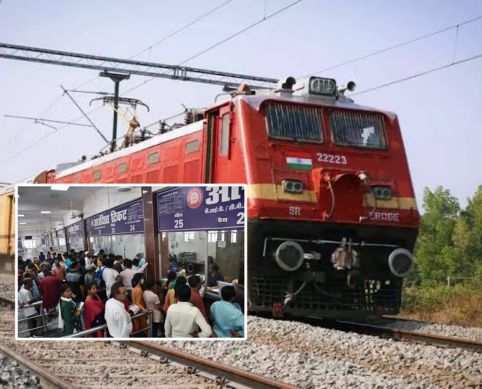Railways reduces the advance reservation period from 120 days to 60 days

In a move to reverse a decade-old regulation, the Ministry of Railways announced changes to its reservation policies on Thursday, reducing the Advance Reservation Period (ARP) from 120 days to 60 days. The Ministry stated that this new reservation timeframe, effective from November 1, 2024, is considered optimal for passengers.
The ARP will be set at 60 days (not including the day of travel) as of November 1, 2024, and reservations will be modified appropriately. However, the Railways circular states that all bookings booked prior to October 31, 2024, under the former 120-day ARP, will still be valid. Additionally, the Ministry noted that cancellations for bookings made beyond the 60-day ARP will be allowed.
The circular also made it clear that some daytime express trains, such as the Taj Express and Gomti Express, which presently have lower advance reservation limitations, will not be affected. The 365-day limit for international tourists will also remain unchanged. On March 25, 2015, the Ministry extended the time frame for booking train accommodations from 60 to 120 days in advance (excluding the trip date).
Railway advance reservation periods have changed over time. The reservation window has varied from 30 days between 1995 and 1998 to 120 days during several periods, including 1981-1985, 2012-2013, and 2015-2024. Additionally, it has ranged from 45 to 90 days during certain phases.
The Ministry of Railways claims that based on prior experiences, a 60-day advance reservation time is the most appropriate for travelers. “The 120-day window was too long for planning, and many passengers failed to show up for their trips, leading to high cancellation rates and wasted seats and berths. “Currently, approximately 21% of bookings are canceled, and 4-5% of passengers do not board their trains,” the Ministry explained.
The Ministry justified its decision by noting that many passengers fail to cancel their tickets and do not show up, which can lead to issues like impersonation and illegal payments by railway officials. It stated that these problems would be addressed moving forward.
Longer reservation times made it more likely that people would block tickets. When the reservation period is shortened, more real passengers will make reservations. Tickets for general class, which are typically bought just before departure, are unaffected. Because there are fewer cancellations and no-shows, the railways have a better picture of demand and can better arrange special trains ahead of time, the Ministry continued.









